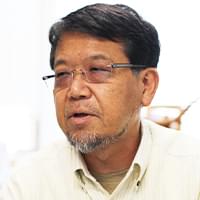- 10 October 2025
- JST 14:00 - 15:30 (GMT+09:00)
- Online
- Simultaneous interpretation
National Implementation and Current Status of Nature-based Solutions (NbS) to Address Climate Change Issues
Summary
n recent years, Nature-based Solutions (NbS) have gained attention as a promising approach to reducing greenhouse gas emissions. NbS refers to the sustainable use of nature’s functions to address various societal challenges.
However, frameworks for implementation and evaluation tailored to the social and geographical contexts of each region remain underdeveloped, and challenges persist in institutional design and financing mechanisms. This session featured lectures and a panel discussion with three researchers who study and practice NbS in Japan and abroad.
The first speaker highlighted that NbS is recognised as an effective response in the IPBES nexus assessment. However, he emphasised that expanding renewable energies and implementing nature-based measures require careful planning that considers trade-offs with other environmental policies, such as biodiversity conservation. The second speaker introduced a case study from Pacific atoll nations threatened by rising sea levels. In addition to conventional coastal engineering, his research aims to develop sustainable coastal protection by combining coral restoration and conservation of foraminifera. The third speaker stressed the importance of long-term sustainability of NbS. He proposed that initiatives should be planned at appropriate spatial scales based on regional characteristics, and that incentives such as designation of nature symbiosis sites, along with maintaining networks between private and public sectors, are essential.
Summary written by: Fund Management Division, Department of Environment Research and Technology Development, Environmental Restoration and Conservation Agency (ERCA)
Panel Discussion
TOJO Junji, Executive Managing Director, Environmental Restoration and Conservation Agency (ERCA)
FUKUYAMA Kenichi, Executive Director, Environmental Restoration and Conservation Agency (ERCA)
SAITO Osamu, Programme Director, Biodiversity and Ecosystem Services Unit, IGES
KAYANNE Hajime, Project Researcher, Department of Civil Engineering, Graduate School of Engineering, The University of Tokyo
NISHIHIRO Jun, Deputy Director, Center for Climate Change Adaptation, National Institute for Environmental Studies (NIES)

YAMANOSHITA Makino
Research Director, Biodiversity and Ecosystem Services Unit, IGES

SAITO Osamu
Programme Director, Biodiversity and Ecosystem Services Unit, IGES

KAYANNE Hajime
Project Researcher, Department of Civil Engineering, Graduate School of Engineering, The University of Tokyo

NISHIHIRO Jun
Deputy Director, Center for Climate Change Adaptation, National Institute for Environmental Studies (NIES)
Session Supporter

Environmental Restoration and Conservation Agency (ERCA): https://www.erca.go.jp/
